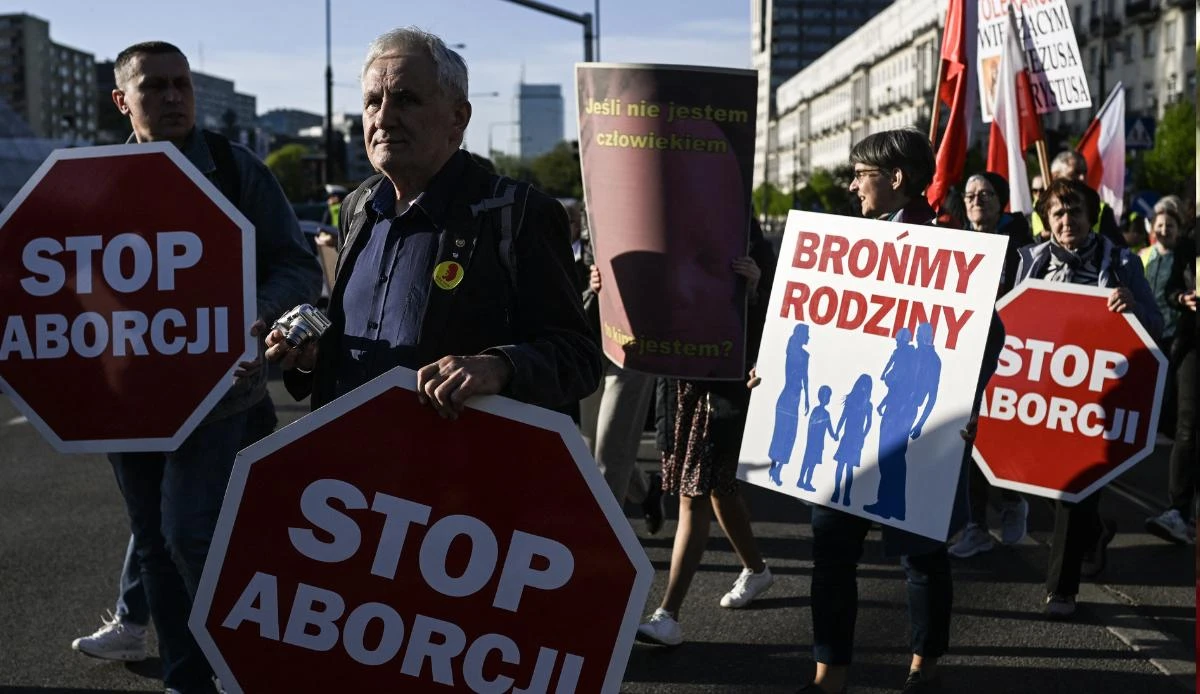Poland’s parliament grapples with abortion law liberalization amid coalition divisions and presidential opposition

Poland, currently enforcing Europe’s most stringent abortion laws, is debating potential liberalization of abortion laws, highlighting divisions within ruling coalition
Poland’s parliament engaged in heated debate on Thursday regarding the potential liberalization of abortion laws in the predominantly Catholic nation, highlighting divisions within the ruling coalition and casting uncertainty over the outcome.
The eight-year rule of the previous right-wing government saw significant setbacks for women’s rights, marked by the tightening of already stringent abortion regulations, triggering widespread protests.
With a population of 38 million, Poland currently enforces some of Europe’s most stringent abortion laws, permitting the procedure solely in cases of sexual assault, incest, or when the mother’s life or health is at risk.
However, since assuming power in October, a moderate coalition has vowed to legalize abortion, with all three factions within the alliance presenting bills aimed at expanding reproductive rights.
“The state can’t ignore the existence of abortion — it happens, always has, and always will,” declared Equality Minister Katarzyna Kotula during the parliamentary session. “It is imperative for the state to ensure that abortion is conducted safely, is accessible, legal, and takes place under appropriate conditions.”
Debate commenced with a proposal by Prime Minister Donald Tusk’s Civic Coalition to legalize abortion up to the 12th week of pregnancy, along with three additional propositions from coalition partners.
However, some lawmakers within the coalition remain hesitant to endorse the legislation, casting doubts on the bill’s fate ahead of a scheduled vote on Friday.
Even if the reforms manage to secure parliamentary approval, President Andrzej Duda, an ally of the conservative Catholic opposition party PiS, is unlikely to sign them into law.
Lacking the necessary three-fifths majority to override a presidential veto, the coalition may find itself at an impasse. Should a deadlock arise, proponents of the bill may have to await next year’s presidential elections in the hope of Duda’s replacement by a more liberal candidate.
Krystyna Kacpura, head of the Federation for Women and Family Planning, noted the historical challenges in advancing similar bills over the past three decades, none of which progressed beyond initial parliamentary discussions.
Tusk expressed optimism regarding the coalition’s support for the legislation, though the conservative PSL farmers party, part of the junior coalition group, has signaled reservations about easing abortion restrictions.
Abortion assistance remains outlawed in Poland, with activists and medical professionals assisting in the procedure risking imprisonment. Last year, activist Justyna Wydrzynska faced legal repercussions for providing abortion pills to a pregnant woman, marking the first such case in the country.
As the debate unfolded, Wydrzynska and fellow activists reiterated calls for accessible and legal abortion services, emphasizing the importance of women’s reproductive rights.
Meanwhile, Polish anti-abortion groups mobilized, staging a Catholic mass and a rally outside parliament under the banner of “defending life.”
The head of Poland’s Catholic church issued a statement urging vigilance in safeguarding the lives of unborn children and their mothers, condemning what he termed “pro-abortion propaganda.”
According to an Ipsos opinion poll, 35 percent of Poles support legalizing abortion up to the 12th week of pregnancy, while 14 percent advocate maintaining the current regulations. Additionally, 23 percent favor a referendum on abortion law liberalization, a proposal endorsed by the Third Way party but criticized by women’s rights advocates.
Navigating new legislation past President Duda, a staunch PiS ally, poses a formidable challenge. Last month, Duda vetoed a bill concerning prescription-free emergency contraception for girls
Source: AFP



